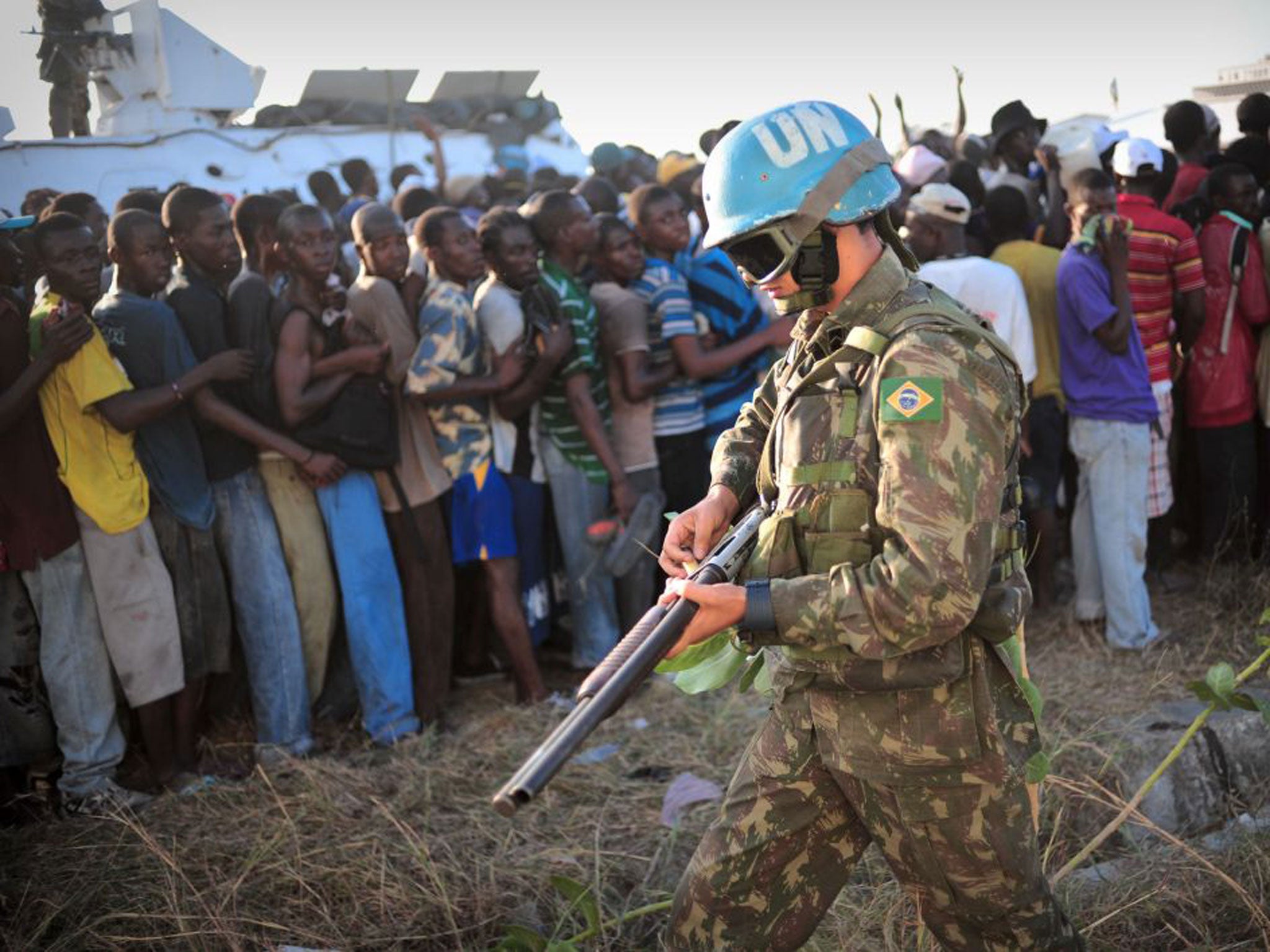Haitians rage as UN rejects payout for cholera victims
Survivors of epidemic, which has killed 8,000 people, condemn ‘immoral’ decision to claim immunity

Thousands of Haitian victims of a cholera epidemic widely believed to have been caused by United Nations peacekeepers vowed to continue their fight to hold the UN to account after it rejected their claims for compensation, citing diplomatic immunity.
More than 8,000 Haitians have died from the epidemic and 500,000 people, some 5 per cent of the population, have fallen sick since the disease entered the impoverished Caribbean nation’s water system in October 2010.
The claims were filed on behalf of 5,000 victims filed in 2011 by the Institute for Justice and Democracy in Haiti, a Boston-based human rights group. In its response to the claims, published this week, the UN said “the claims are not receivable, pursuant to Section 29 of the Privileges and Immunities of the United Nations”.
The UN spokesman Martin Nesirky said the Secretary-General Ban Ki-moon had telephoned the Haitian President Michel Martelly to inform him of the decision. “The Secretary-General again expressed his profound sympathy for the terrible suffering caused by the cholera epidemic,” Mr Nesirky said.
Ira Kurzban, one of the claimants’ lawyers, condemned the decision. “We believe that it’s quite immoral for the Secretary-General to deny all responsibility, not even to admit that they were the cause of the worst cholera epidemic in the world today,” Mr Kurzban said.
“What happens now is we begin to decide where we are going to sue the United Nations. We believe that the Secretary-General has to be held accountable, they have to accord with the rule of law, and that accountability will either be decided in a court of law or in the court of public opinion.”
Although Haiti has suffered from disasters and epidemics of many varieties, it had been spared cholera for more than 200 years until the arrival of Nepalese peacekeepers in the Mirebalais region, north of Port-au-Prince, in 2010. Part of the UN “stabilisation force” Minustah, which has been stationed in Haiti since a coup d’état in 2005, they moved into a base within a few metres of the narrow Meille river, a tributary of the Artibonite, the country’s largest waterway.
Cholera is endemic to the Indian subcontinent, and Nepal had suffered a fresh outbreak shortly before the battalion set off for Haiti. As successive investigations have concluded, the peacekeepers’ base was not provided with efficient sanitation, and soon contaminated waste began flowing into the Meille river, the main source of drinking water for nearby villagers. Tuné, a farmer nearby, described how his son contracted the disease soon after drinking from the river. “Suddenly he started shaking. We rented a motorcycle to get him to a hospital quickly. They gave him one bag of IV fluids, then another one. On the third and final one he died.”
Lacking a modern water and sanitation system, most Haitians depend on rivers for all their water needs, and soon the disease was rampaging through the country.
The UN initially denied all responsibility, but in 2012 released a report admitting “the strains [of cholera] isolated in Nepal and Haiti were a perfect match”. But the report went on to argue that “a confluence of factors” was behind the epidemic, which was therefore “not the fault, or deliberate action, of a particular individual”. These factors, including “Haiti’s weak infrastructure”, were responsible for causing it.
But the Institute for Justice and Democracy in Haiti described this as “a legally invalid defence. The weakness of Haiti’s health, water and sanitation systems were … well-known before the outbreak… Haiti’s vulnerability … made the cholera epidemic a directly foreseeable consequence of the UN’s reckless release of contaminants into Haiti’s waterways.”
Join our commenting forum
Join thought-provoking conversations, follow other Independent readers and see their replies
Comments
Bookmark popover
Removed from bookmarks